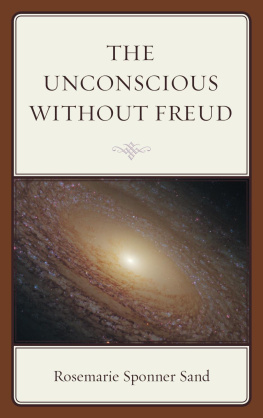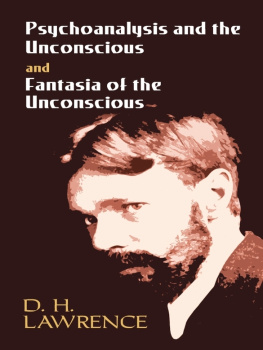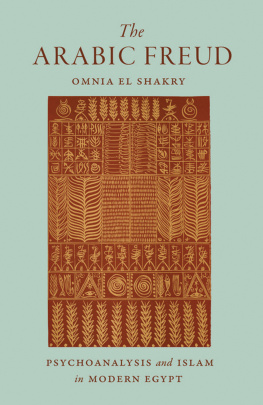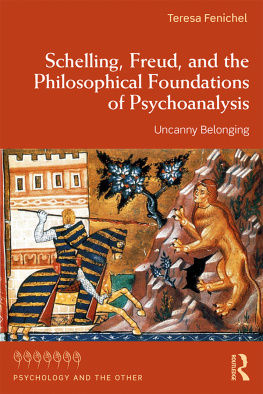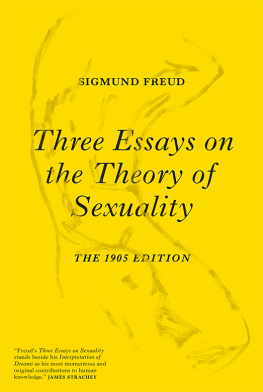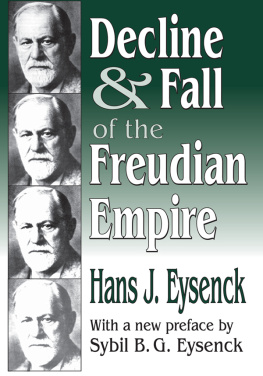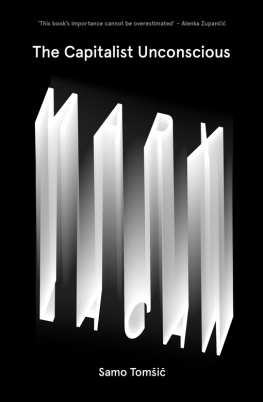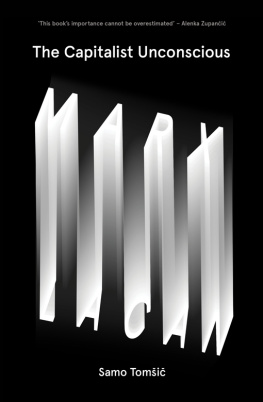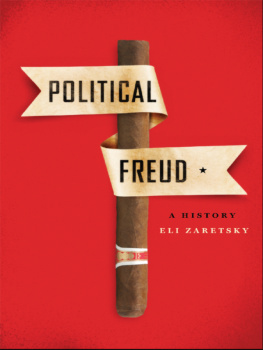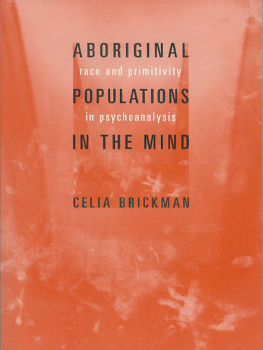
RACE AND THE UNCONSCIOUS
FREUDIANISM IN FRENCH CARIBBEAN THOUGHT
The European Humanities Research Centre
UNIVERSITY OF OXFORD
The European Humanities Research Centre of the University of Oxford organizes a range of academic activities, including conferences and workshops, and publishes scholarly works under its own imprint, LEGENDA. Within Oxford, the EHRC bridges, at the research level, the main humanities faculties: Modern Languages, English, Modern History, Classics and Philosophy, Music and Theology. The Centre stimulates interdisciplinary research collaboration throughout these subject areas and provides an Oxford base for advanced researchers in the humanities.
The Centre's publications programme focuses on making available the results of advanced research in medieval and modern languages and related interdisciplinary areas. An Editorial Board, whose members are drawn from across the British university system, covers the principal European languages. Titles currently include works on Arabic, Catalan, Chinese, English, French, German, Italian, Portuguese, Russian, Spanish and Yiddish literature. In addition, the EHRC co-publishes with the Society for French Studies, the Modern Humanities Research Association and the British Comparative Literature Association. The Centre also publishes a Special Lecture Series under the LEGENDA imprint, and a journal, Oxford German Studies.
Co-Director (Publications)
Professor Ritchie Robertson, St John's College
Editorial Adviser
Professor Malcolm Bowie, Christ's College, Cambridge
Further information:
Kareni Bannister, Senior Publications Officer
European Humanities Research Centre
University of Oxford
47 Wellington Square, Oxford OX I 2JF
enquiries@ehrc.ox,ac.uk
www.ehrc.ox.ac.uk
Legenda
RESEARCH MONOGRAPHS IN FRENCH STUDIES
Editorial Committee
Professor Michael Moriarty, Queen Mary, University of London (General Editor)
Dr Adrian Armstrong, University of Manchester
Dr Wendy Ayres-Bennett, New Hall, Cambridge
Professor Celia Britton, University College London
Professor Diana Knight, University of Nottingham
Professor Bill Marshall, University of Glasgow
Published in this series:
1. Privileged Anonymity: The Writings of Madame de Lafayette by Anne Green
2. Stphane Mallarm. Correspondance: complments et supplments edited by Lloyd James Austin, Bertrand Marchai and Nicola Luckhurst
3 Critical Fictions: Nerval's 'Les Illumins' by Meryl Tyers
4 Towards a Cultural Philology: Phdre and the Construction of 'Racine' by Amy Wygant
5. George Sand and Autobiography by Janet Hiddleston
6. Expressivism: The Vicissitudes of a Theory in the Writing of Proust and Barthes by Johnnie Gratton
7. Memory and Survival: The French Cinema of Krzysztof Kielowski by Emma Wilson
8. Between Sequence and Sirventes: Aspects of Parody in the Troubadour Lyric bv Catherine Lglu
9. All Puns Intended: The Verbal Creation of Jean-Pierre Brisset by Walter Redfern
10. Saint-Evremond: A Voice From Exile by Denys Potts
11. La Cort d'Amor: A Critical Edition edited by Matthew Bardell
LEGENDA
EUROPEAN HUMANITIES RESEARCH CENTRE RESEARCH MONOGRAPHS IN FRENCH STUDIES 12
Race and the Unconscious
Freudianism in French Caribbean Thought
Celia Britton
First published 2002
Published for the Society for French Studies by the
European Humanities Research Centre
of the University of Oxford
47 Wellington Square
Oxford OX1 2JF
LEGENDA is the publications imprint of the European Humanities Research Centre
Published 2017 by Routledge
2 Park Square, Milton Park, Abingdon, Oxon OX14 4RN
711 Third Avenue, New York, NY 10017, USA
Routledge is an imprint of the Taylor & Francis Group, an informa business
European Humanities Research Centre of the University of Oxford 2002
ISBN 13:978-1-900755-68-9 (pbk)
ISSN 1466-8157
All rights reserved. No part of this publication may be reproduced or disseminated or transmitted in any form or by any means, electronic, mechanical, photocopying, recording or otherwise, or stored in any retrieval system, or otherwise used in any manner whatsoever without the express permission of the copyright owner
British Library Cataloguing in Publication Data
A CIP catalogue record for this book is available from the British Library
LEGENDA series designed by Cox Design Partnership, Witney, Oxon
In the course of writing this study I have benefited from help and advice generously offered by a number of people. I would like to thank Malcolm Bowie for his invaluable comments on a draft version of the manuscript, and Michael Syrotinski for his encouragement and stimulating discussion. I am also extremely grateful to Edouard Glissant and to Maryse Cond for giving me the opportunity to discuss some of the relevant issues with them.
This book is dedicated to the memory of my uncle and aunt, Donald and Clare Winnicott.
The position of psychoanalysis in the intellectual culture of the French Caribbean is a strange mixture of pervasiveness and obscurity. It has never been a prominent central issue, in the way that movements specific to the region such as Negritude and crolit have been, and are; nor has it had as high a profile as other international movements such as Marxism or surrealism. Most of the authors considered here are better known for their work in other areaspolitical and/or literary. Yet this in itself indicates the extent to which Freudian theory, and the controversies it arouses, remains a surprisingly persistent element in the culture: the very fact that, from the 1940s to the 1980s, the key figures of Antillean thoughtCsaire, Mnil, Fanon, Glissanthave felt the need to engage with and use it alongside their major, very different and sometimes even incompatible, concerns, suggests that psychoanalysis offers at least the possibility of an insight into Antillean culture and society that is not to be found anywhere else.
This rather tangential, off-centre position, together with its refusal to go away, gives psychoanalysis an interesting perspective on Antillean culture as a whole. It is a thread running through very diverse areas of concern, or simply of intellectual fashion; it uncovers connections between literature, ethnography, sexuality, anti-colonial revolt, postcolonial alienation, issues of gender, psychiatry and the institutional racism of the social services. Csaire and Fanon, for instance, have usually been studied separately, from within the different disciplines of literary criticism and political theory respectively, but their writings on psychoanalysis reveal how closely Fanon follows Csaire. Neither of them is obviously a central influence on Glissant, but it is when Glissant is writing about the unconscious, two decades later, that he is perhaps most clearly indebted to Fanon. Disciplinary boundaries have created an illusory separation between these three much studied figures, but their work is very closely interlinked in the social reality of Martinique, and comparing their
The main theme of my book is the relationship between psychoanalysis and issues of race; I will be looking at the different ways in which Freudian theory has been incorporated into arguments about racial equality and racial identity in the French Caribbean. These have all been controversial (as Simonne Henry-Valmore puts it, 'l'histoire de la psychanalyse aux Antilles, c'est--dire l'histoire des rsistances lies son introduction'). But, she argues, 'If we persist in reductively defining black subjectivity as political agency, we will continue to overlook the force of desire in black texts as well as in the lives of African Americans' (p. 10); and the question she articulates at the end of her introduction'can psychoanalysis help us to increase our understanding of the oppressive emotional meanings associated with racial difference?' (p. 20)is one that has at least implicitly motivated a number of Antillean appropriations of Freudianism.


